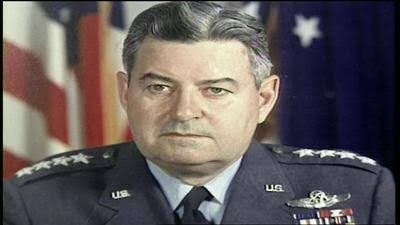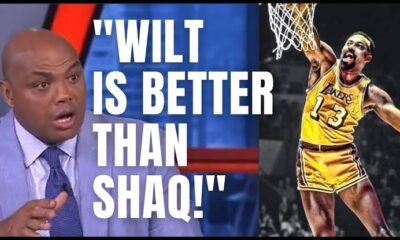Uncategorized
What counsel did Kennedy receive from General Curtis LeMay?
**The Counsel President Kennedy Received from General Curtis LeMay During the Cuban Missile Crisis**

During the tense days of the Cuban Missile Crisis in October 1962, President John F. Kennedy sought advice from his top military and civilian advisors on how to respond to the discovery of Soviet nuclear missiles in Cuba. One of the key figures providing counsel was General Curtis LeMay, the Chief of Staff of the United States Air Force and a staunch advocate for a strong military response.
### General Curtis LeMay’s Advice
General LeMay was known for his aggressive military strategies and his belief in the overwhelming use of force to achieve strategic objectives. During the Cuban Missile Crisis, his counsel to President Kennedy reflected these principles.
1. **Advocacy for a Direct Military Strike**: LeMay strongly recommended an immediate and decisive air strike against the Soviet missile sites in Cuba. He argued that this would eliminate the threat swiftly and send a clear message to the Soviet Union about American resolve. LeMay believed that a show of force was necessary to prevent further Soviet encroachments in the Western Hemisphere.
2. **Rejection of a Naval Blockade**: LeMay was critical of the naval blockade, or “quarantine,” that Kennedy initially favored. He viewed it as a weak and ineffective measure that would not address the immediate threat posed by the missiles. LeMay feared that the blockade would be seen as a sign of indecision and could embolden Soviet Premier Nikita Khrushchev.
3. **Downplaying the Risk of Escalation**: LeMay was less concerned about the risk of the crisis escalating into a full-scale nuclear war. He believed that the United States’ superior military capability would deter the Soviet Union from retaliating. LeMay’s confidence in American military dominance led him to dismiss the concerns of those who feared that a strike on Cuba could provoke a Soviet response against Berlin or other NATO allies.
### The Context of LeMay’s Advice
General LeMay’s counsel must be understood within the broader context of his career and military philosophy. As a key architect of the U.S. strategic bombing campaigns during World War II and a leading proponent of nuclear deterrence during the Cold War, LeMay had a reputation for advocating aggressive military solutions. His experiences had shaped his belief that decisive action and overwhelming force were essential to national security.
### Kennedy’s Response to LeMay’s Counsel
Despite LeMay’s forceful arguments, President Kennedy opted for a more cautious approach. Kennedy was acutely aware of the potential consequences of a military strike, including the possibility of triggering a nuclear conflict. He chose to implement a naval blockade to prevent further Soviet shipments of military equipment to Cuba and initiated a period of intense diplomatic negotiations.
The blockade, combined with backchannel communications between Kennedy and Khrushchev, ultimately led to a peaceful resolution of the crisis. The Soviet Union agreed to dismantle the missile sites in Cuba in exchange for a U.S. commitment not to invade the island and the secret removal of American missiles from Turkey at a later date.
### Legacy of LeMay’s Advice
General Curtis LeMay’s advice during the Cuban Missile Crisis has been the subject of extensive analysis and debate. While his aggressive stance reflected a legitimate concern for national security and the need to address the missile threat, Kennedy’s decision to pursue a more measured response is widely credited with averting a potential nuclear catastrophe.
The crisis highlighted the complex interplay between military and civilian leadership in shaping U.S. foreign policy. It also underscored the importance of considering a range of perspectives and the value of diplomatic solutions in resolving international conflicts.
### Conclusion
General Curtis LeMay’s counsel to President Kennedy during the Cuban Missile Crisis was marked by a strong advocacy for military action and a dismissal of more cautious approaches. While his advice was rooted in a commitment to national security, Kennedy’s decision to pursue a blockade and diplomacy ultimately proved successful in defusing the crisis. The episode remains a pivotal moment in Cold War history, illustrating the critical importance of careful decision-making in the face of existential threats.
-

 Basket Ball6 months ago
Basket Ball6 months agoNBA Legends Explain Why Wilt Chamberlain Was Better Than Everybody. Take a look at what he said ⬇️⬇️
-

 Football4 weeks ago
Football4 weeks agoTransfer-News: Trauriger Abschied, da Kolbs Top-Stürmer Wechsel zustimmt…
-

 Uncategorized4 months ago
Uncategorized4 months agoWishing Anthony Delon a Happy Birthday: Celebrate with Him Today! 🎂
-

 Uncategorized4 months ago
Uncategorized4 months ago**Hollywood Icon Robert Redford Passes Away at 87
-

 Uncategorized5 months ago
Uncategorized5 months agoPat Metheny gives his explanation for retiring: “I know this would hurt my fans, but I have no other choice.”
-

 Uncategorized5 months ago
Uncategorized5 months agoAgnetha Fältskog explains why she decided to retire: “I have no choice but to do this, even though I know it will upset my fans.”
-

 Uncategorized5 months ago
Uncategorized5 months agoI bid you farewell: Pat Metheny declares his retirement date because of…
-

 Uncategorized4 months ago
Uncategorized4 months agoJoyful News: Anthony Delon and Sveva Alviti Announce They’re Expecting Their First Baby—Congratulations to the Happy Couple!












